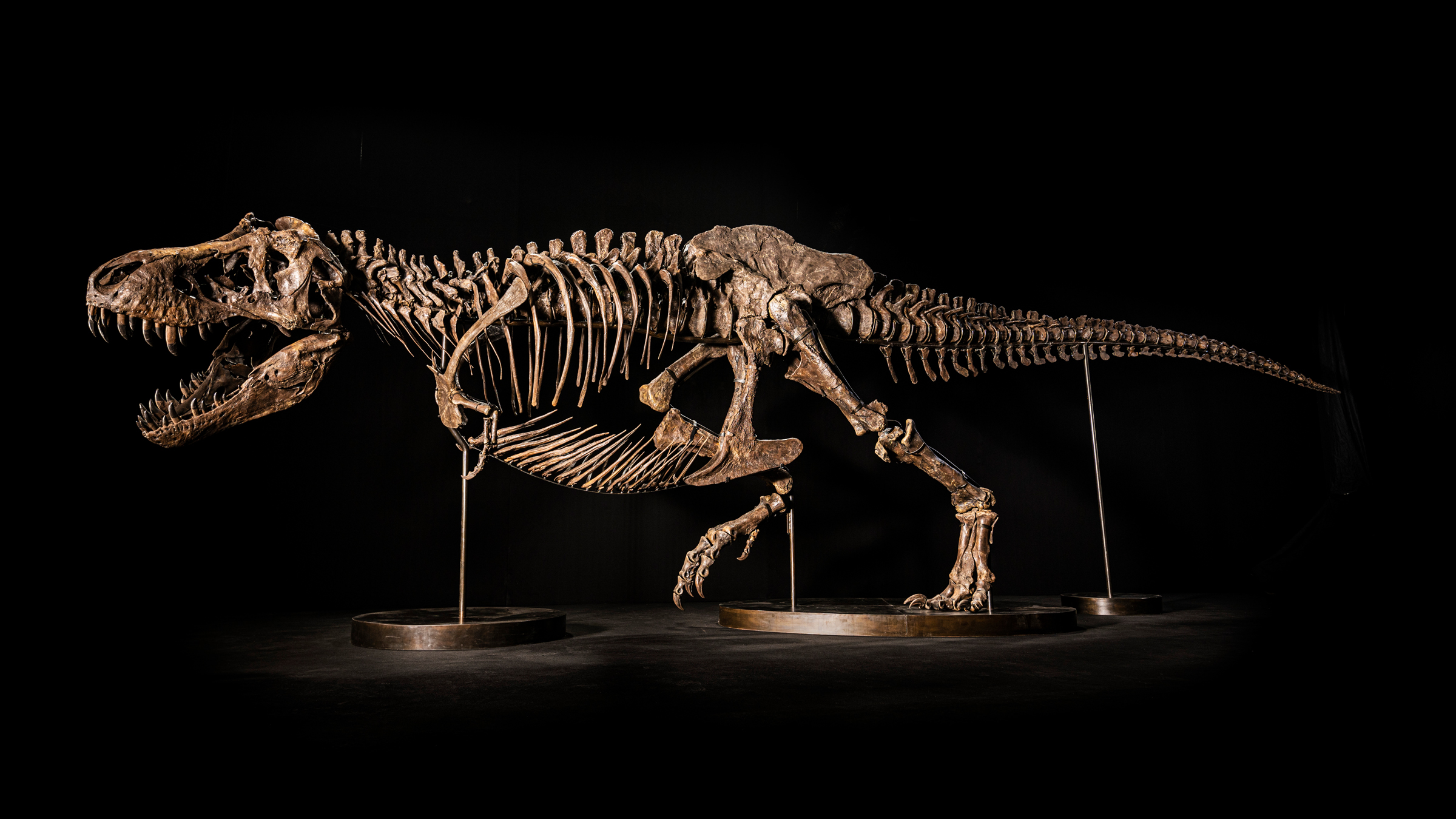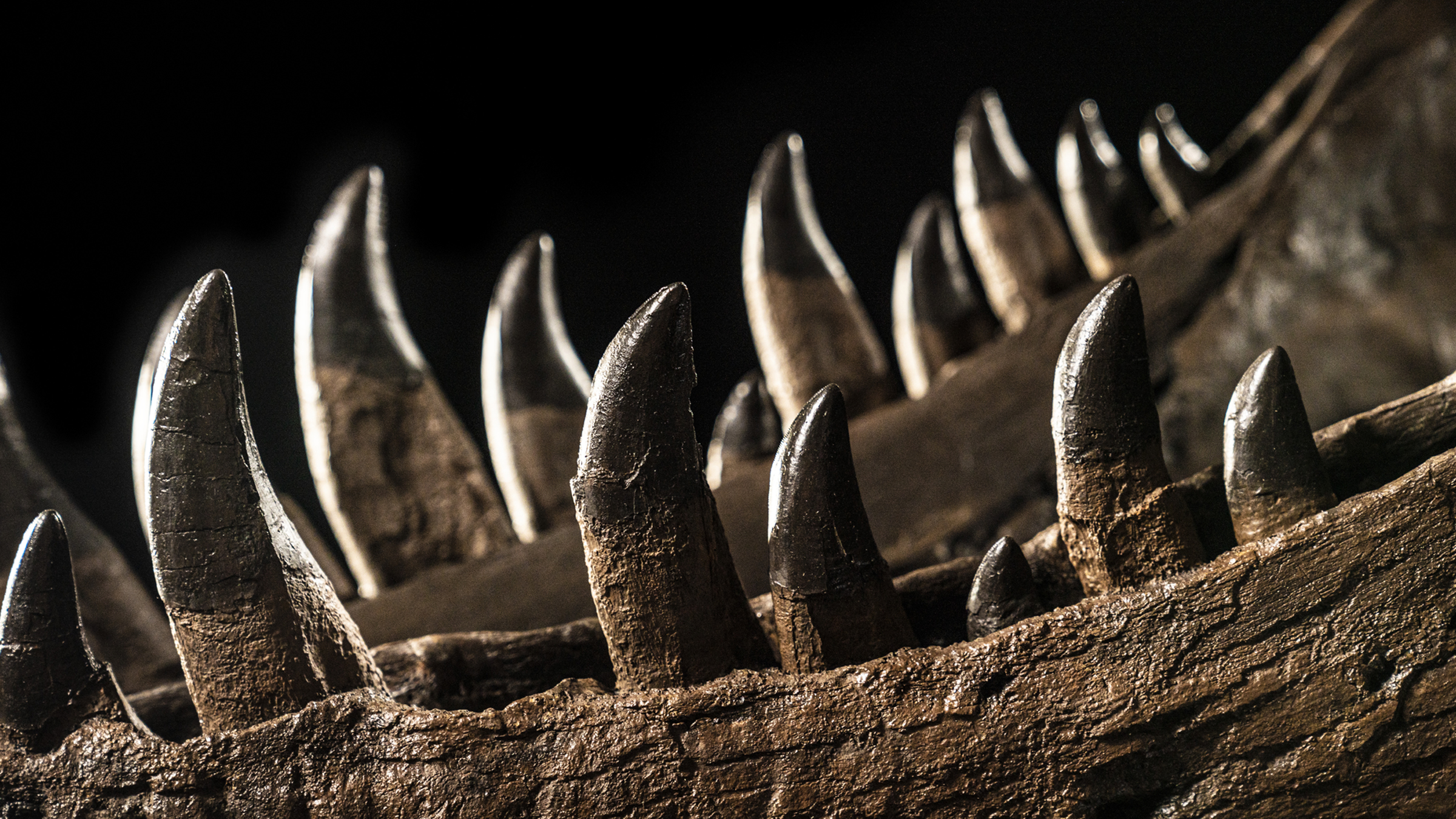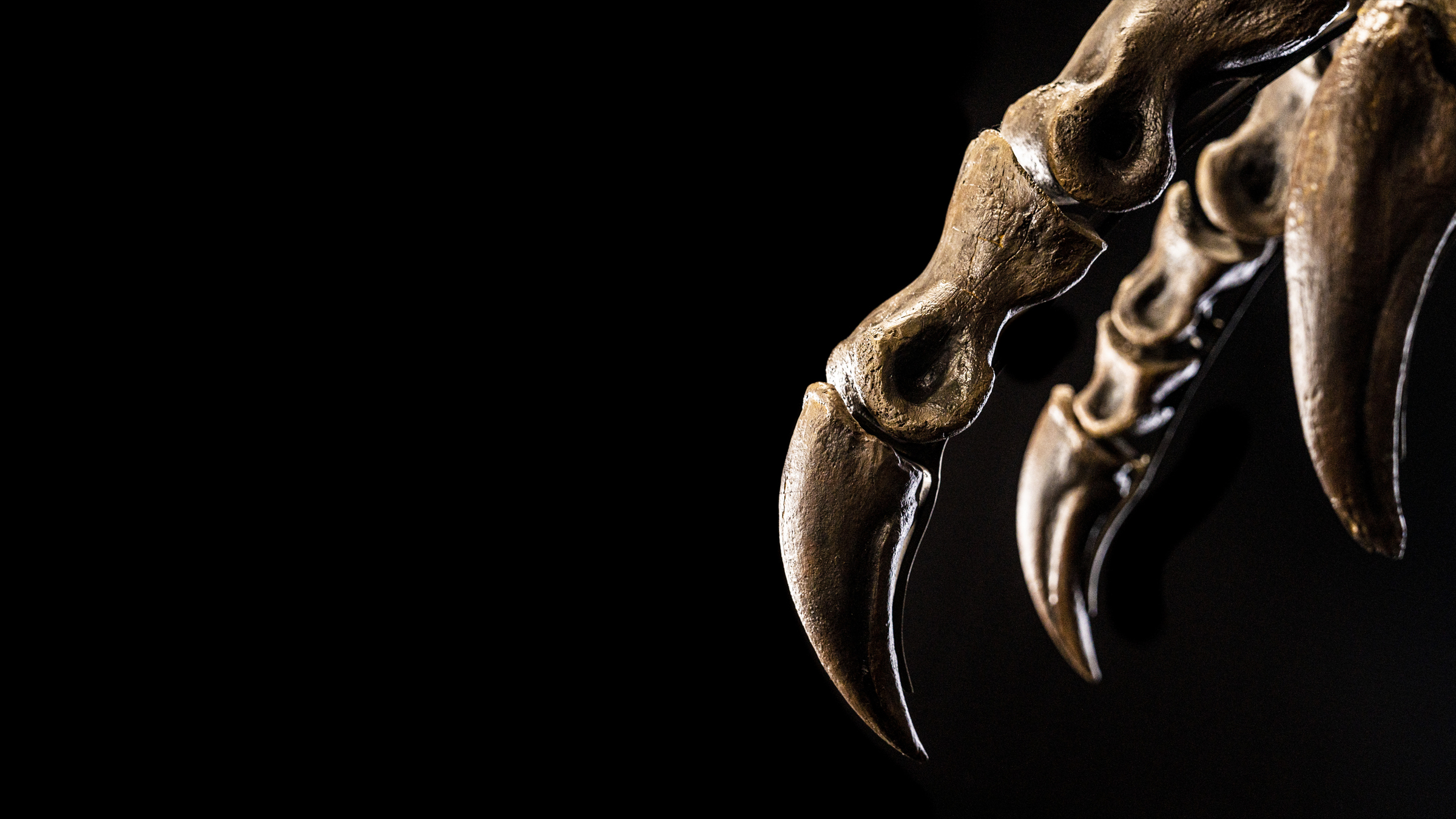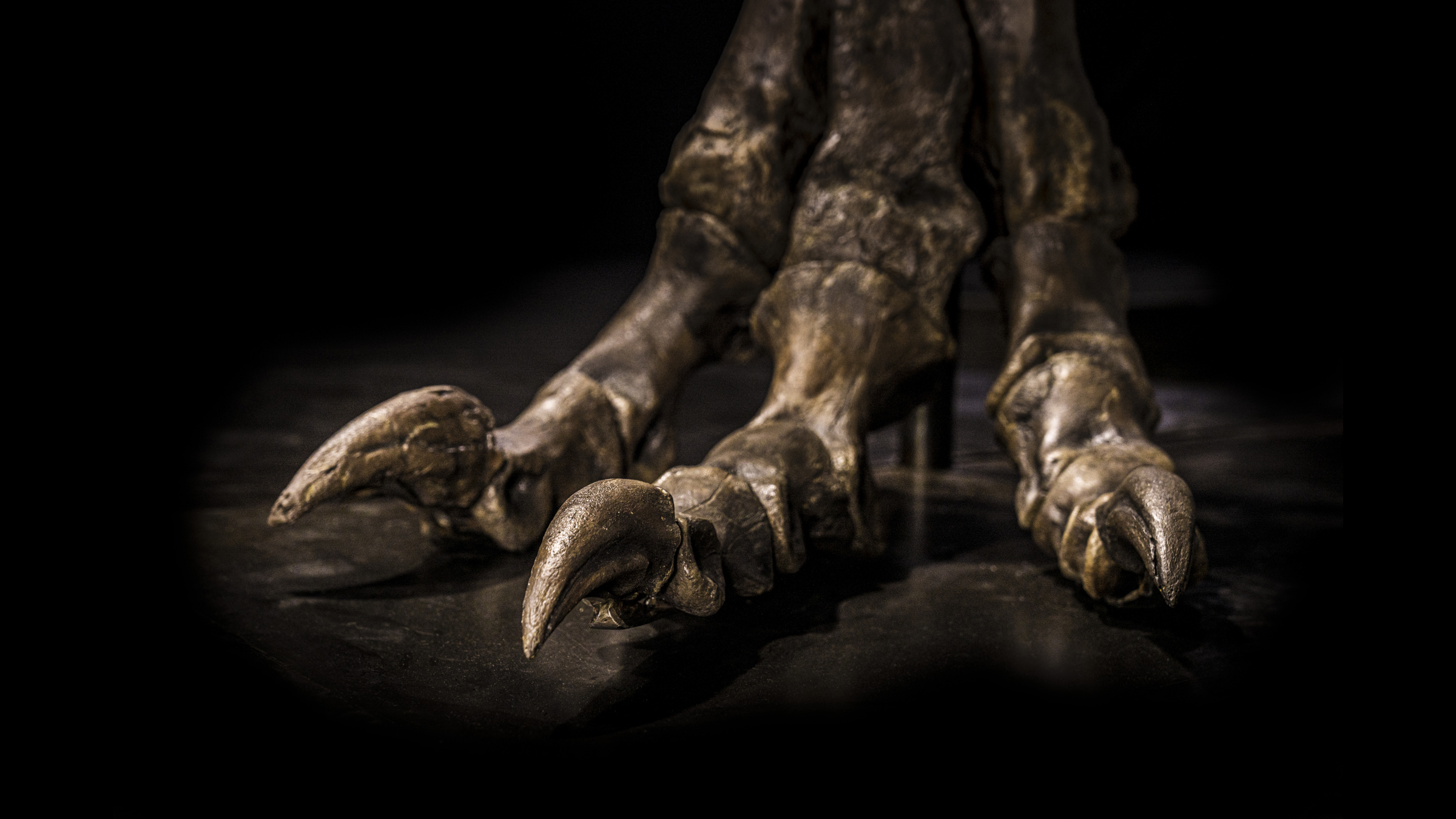Spectacular T. rex skeleton may fetch $25 million at auction (the new owner gets to name it, too)
"This fossil belongs in a museum, not in an auction house overseas."

The mighty Tyrannosaurus rex once stalked western North America, but now, in a first, the fossil remains of the dinosaur king are hitting an auction block in Asia, where the prehistoric beast's bones might sell for as much as $25 million, according to Christie's Hong Kong.
The 3,000-pound (1,400 kilogram) specimen — nicknamed Shen for now; whoever buys it gets exclusive naming rights — was uncovered in Montana's Hell Creek Formation, a region renowned for its fossils dating to the late Cretaceous period, which ended about 66 million years ago. Shen measures about 40 feet (12.2 meters) long, 15 feet (4.6 m) tall and 6.8 feet (2.1 m) wide, according to Christie's.
Shen's auction, planned for Nov. 30, marks the dinosaur specimen as one of many to be auctioned in recent years, including Stan the T. rex, which in 2020 shattered records as the most expensive dinosaur fossil ever when it sold for $31.8 million.
"After the unforgettable, record-breaking sale of Stan at Christie's New York in 2020, it is a thrill and an immense privilege for us to be trusted with the sale of another wonderous T. rex skeleton," James Hyslop, the head of Science and Natural History at Christie's, said in a statement.
Related: 'Bold theory' that Tyrannosaurus rex is 3 species gets stomped to pieces
While Shen isn't expected to bring in as much cash as Stan, its fossils are still expected to fetch a higher price than the near-complete T. rex known as Sue, which sold in 1997 for $8.36 million ($15.4 million in today's dollars, given inflation) to the Field Museum of Natural History in Chicago, which bought the apex predator with the support of private donors.

But while auctioneers may be excited about the upcoming sale, paleontologists are less than thrilled.
Sign up for the Live Science daily newsletter now
Get the world’s most fascinating discoveries delivered straight to your inbox.
"The auction of Shen is terrible news for science: although it isn't clear how complete the specimen really is, its sale will be another loss for science," Thomas Carr, a vertebrate paleontologist and an associate professor of biology at Carthage College in Wisconsin, who is not involved with the sale, told Live Science in an email.


Although Hyslop called Shen "one of the most scientifically studied T. rex skeletons to come to auction, Carr, a T. rex specialist, said that he had never heard of the specimen before. Even so, every T. rex specimen is valuable, as each sheds light on the evolution and biology of rare dinosaurs, he said. If Shen is sold into private hands, rather than to a museum, it would be unethical for paleontologists to study it, Carr added. Science requires replication, and because a private collector could pull Shen from the science world at any time, future researchers might not be able to study it to replicate previous work.
"After the auction, Shen the T. rex will almost certainly languish unstudied and out of sight," Carr said.
Although the Field Museum rallied to buy Sue 25 years ago, the growing popularity of dinosaur fossils among wealthy individuals is making it harder for public institutions to compete at the auction block. "Multimillion dollar fossils are absolutely out of reach of the purchasing ability of museums, limiting the market to the rich who have no scientific expertise," Carr said, adding that "this fossil belongs in a museum, not in an auction house overseas where ordinary Americans can't see it."
Originally published on Live Science.

Laura is the archaeology and Life's Little Mysteries editor at Live Science. She also reports on general science, including paleontology. Her work has appeared in The New York Times, Scholastic, Popular Science and Spectrum, a site on autism research. She has won multiple awards from the Society of Professional Journalists and the Washington Newspaper Publishers Association for her reporting at a weekly newspaper near Seattle. Laura holds a bachelor's degree in English literature and psychology from Washington University in St. Louis and a master's degree in science writing from NYU.









